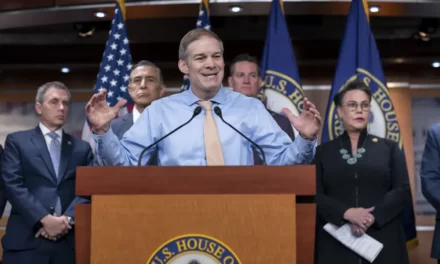
Tillerson: China’s Expansion into Africa Not Entirely Altruistic
Africa needs to be careful when it takes loans from China, cautioned Sec. of State Rex Tillerson on Thursday.
“We are not in any way attempting to keep Chinese dollars from Africa,” stressed Tillerson, but “it is important that African countries carefully consider the terms of those agreements and not forfeit their sovereignty.”
Tillerson’s comments come during his first diplomatic trip to Africa, the goal of which is to strengthen security alliances with the continent as it increasingly turns to China for trade and money.
The United States sends more aid to Africa than any other country, but Beijing surpassed the US as Africa’s largest trade partner in 2009. Trade volume between the countries peaked in 2015, accounting for more than $200 billion.

According to a 2017 report by Ernst & Young, China also creates more jobs in Africa than any other country.
China has “aided or financed the building of over 5,000km of railway and roads, built more than 200 schools and nearly 100 hospitals, and trained more than 160,000 professional workers in Africa,” wrote Liu Xiaoming, Chinese ambassador to the UK. China also promotes its language and culture in Africa by encouraging the study of Chinese in African schools and inviting African students to study abroad in China.
During a speech delivered shortly before leaving for Africa, Tillerson criticized China for using “opaque contracts, predatory loan practices, and corrupt deals” to foster dependency and create debt. If Africa accepts loans from Beijing and then “gets into trouble,” Africa will “lose control of its own infrastructure or its own resources through default.”
Tillerson described America’s investments in Africa as a “responsible” promotion of the “rule of law” and unveiled a plan to send $533 million in humanitarian assistance to fight famine and hunger in Ethiopia, South Sudan, and Somalia.
China’s investments in Africa have also elicited criticism from African leaders who believe China is exploiting the continent to gain resources like oil and timber.
“Africa’s leaders are not naive, they are not hoodwinked into deals with China or anyone else,” says Aubrey Hruby, a senior fellow at the Atlantic Council’s Africa Center. “But they do feel like they don’t have a lot of alternatives.”
The power of China’s engagement with Africa is “like a tidal pull,” says Delaware Senator Chris Coons (D). “They’re present, they’re engaged, and they’re providing a powerful counterexample of how you can organize society.”
—
Tillerson landed in Ethiopia on Wednesday and visited the China-built African Union HQ on Thursday. The facility is seen as a symbol of China’s influence on the continent and its push for resources. Before he returns to the US, Tillerson will also visit Djibouti (home to military bases owned by the US, Japan, China, Italy, and France) as well as Kenya, Chad, and Nigeria (countries engaged in fighting Islamist insurgents).
“Geographically,” Tillerson’s trip is “restricted to the so-called arc of instability,” argues Africa analyst John Stremlau. “Evidently counter-terrorism is America’s main Africa concern. If Trump and Tillerson were seriously interested in issues of trade, public health, and good governance, he would have at least included democratic South Africa on his agenda.”
Author’s Note: Tillerson has really hit the nail on the head here. China’s involvement with Africa is not altruistic. Africa is full of underutilized resources – including land, which China desperately needs. If Africa is not careful, it will wake up one morning to find its country populated by the Chinese.
Keep in mind China is a Communist nation with a bad record on human rights. They will not encourage democracy or freedom in Africa.























Faggots and trannies and either demon possessed or has mental illness. Like Dunger💩
Come on guys, we need our critical thinking hats on which make this article is quite funny as a fantasy…
Frank, it is dangerous to drink and post...
Hey DUNGER. Trump is a felon who still kicked the token’s stinking ass. He’s judged a sex offender by fools…
Joe you can’t take Dunger seriously. He only spews leftist bullshit.